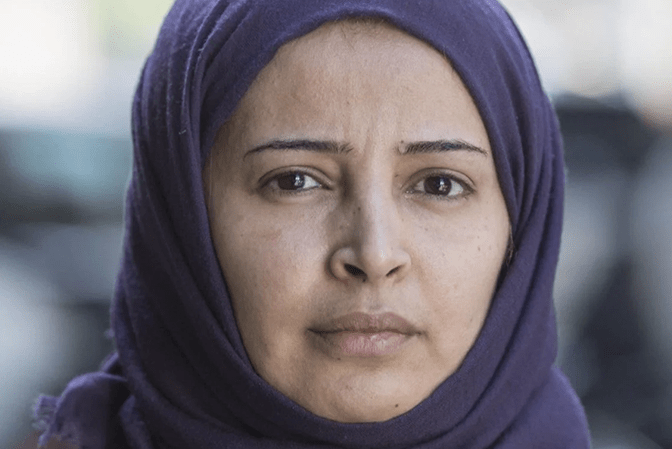Hanna Komar on visas, Belarus, and sunsets on Peckham Rye.
PEN Transmissions is English PEN’s magazine for international and translated voices. PEN’s members are the backbone of our work, helping us to support international literature, campaign for writers at risk, and advocate for the freedom to write and read. If you are able, please consider becoming an English PEN member and joining our community of over 1,000 readers and writers. Join now.
No one, not even the exile himself, wants to hear a story about painful encounters with bureaucracy, or consider whether Walter Benjamin might have killed himself just because he did not get his papers.
– Dubravka Ugrešic
A presidential decree was issued in Belarus on 4 September 2023. It banned Belarusian embassies and consulates from renewing passports or processing other documents for Belarusian citizens living abroad. Sviatlana Tsikhanouskaya – the exiled national leader who independent observers agree won the 2020 presidential election – responded:
We’re working with host countries to solve the situation & preparing the New Belarus passport. While the state abandons its duty to care for its citizens, we won’t!
That evening, I meet with a Belarusian friend in London to watch the sunset in Peckham Rye. ‘We aren’t going to discuss the passports,’ he tells me right away. ‘Sure,’ I reply, knowing it’s hopeless. As if it isn’t everything we do – discussing passports, visas, permits, travel documents.
The international reaction followed. The UN Human Rights Office tweeted:
Decree banning issuance or renewal of passports abroad risks violating rights of thousands of Belarusians in exile, including their freedom of movement. No one should feel pressured to return & risk persecution. We urge review of decree in line with int’l standards.’
The EU ‘strongly condemned’ Lukashenko’s ban. The US Embassy in Belarus called it ‘the latest in a long line of cynical rejections by the regime of its basic obligations to its people.’ Lithuania promised to issue special passports to Belarusian citizens with the legal right to reside in Lithuania, like Poland had in January.
I am a Belarusian writer in exile. I am likely to be arrested if I cross the Belarusian border.
I have a Belarusian passport that expires in June 2028. It has one blank page left for stamps. In it, I have a Schengen visa, valid for as long as the passport is. Every time I leave the UK and return, my passport is stamped. Easy maths: soon, there won’t be enough space for stamps. Someone told me that if a border control officer doesn’t find space for a stamp, I may be refused entry to the country. I spend sleepless nights thinking through the short text I will recite to the officers in every airport I pass through, asking them to put the stamps very close to each other, to be efficient with the precious space.
What could help me is a UK travel document. This can be issued to a non-British citizen legally residing in the UK who is unable to receive a passport from their authorities. It can be issued, but is it? The main requirement: you must prove that you can’t receive a passport or a travel document from your national government. You must prove they have rejected you. They must send you a rejection in written form. A political activist can’t count on this, of course, but the Home Office doesn’t care.
Before the September decree, I had applied to the Belarusian Embassy in the UK for a new passport. On 14 October 2022, in their office in London, they accepted my documents and my payment of €100 and told me to wait for a call. Three or four months – that’s how long it usually takes. The passports are made in Belarus and delivered to the UK by a legal representative of the Embassy. There aren’t direct flights to Belarus anymore, and so getting there and back is challenging even for governmental officials. Delivering documents does take time. But not ten months. That’s how long I’d waited before I called them the third time. The officer who picked up the phone said, ‘Anna’ – that’s what they call me in Russian – ‘you support sanctions with such vigour that we won’t be providing you a service. Your new passport is ready and is waiting for you in Belarus. You can go and collect it there, if you have nothing to be afraid of. We haven’t rejected your passport. We just aren’t going to bring it to the UK.’
I wasn’t the only one in that situation. Other activists in the UK – and in Lithuania, Poland, Germany, Slovenia, and several other countries – were facing the same problem. Some governments are more understanding – more humane – than others.
The refusal letter for a travel document from the UK Home Office said this: ‘What you have submitted as evidence is not expectable evidence that an application for a national passport was made and you have been formally and unreasonably refused.’ That arrived before this new Belarusian law, which gives me hope that the evidence would be sufficient now. But I don’t feel I can rely on that.
I watch the sun setting over Peckham Rye and discuss with my friend the applications we are both preparing for Global Talent visas. If we receive the Exceptional Talent version, we’ll be able to apply for indefinite leave to remain after three years; if it’s the Exceptional Promise one, it’ll be five years. My Belarusian passport is expiring in less than five years. Do they issue indefinite leave to remain if your passport has expired?
When I came to London to do my master’s in September 2021, I was determined to return to Belarus the following year. I was certain that things would improve in that time. Two years later, in September 2023, I’m wondering if, in five years, I’ll have the New Belarus passport that Sviatlana Tsikhanouskaya’s office is working on; whether I’ll have an expired, non-functional Belarusian passport; whether I’ll be stateless (the regime threatens to take away citizenship of particularly active citizens); whether I’ll jump into the Exceptional Talent carriage. Is that a lack of hope? I’d say it’s the knowledge, from the perspective of history and other countries’ examples, of what totalitarian governments are capable of.
Dubravka Ugrešic, in her essay The Writer in Exile, writes, ‘A love story ends with marriage, the exile’s when he acquires a passport from another country.’ With this new law, I wouldn’t be able to get married here, either. I would need a certificate from Belarus saying that I’m not already married, and Belarusian embassies are banned from issuing them. I can’t get married. At least you don’t have to be afraid of that.
Hanna Komar is a Belarusian poet, translator, writer. She has published five poetry collections: Страх вышыні (Fear of Heights), a collection of docu-poetry Мы вернемся (We’ll Return) and Вызвалі або бяжы (Set Me Free or Run) in Belarusian, as well as a bilingual collections Recycled and Ribwort.
Hanna is a member of PEN Belarus and an honorary member of English PEN, and the 2020 Freedom of Speech Prize laureate of the Norwegian Authors’ Union. She has an MA in Creative Writing: Writing the City from the University of Westminster, and is taking a PhD at the University of Brighton, exploring how poetry can support Belarusian women to share experiences of gender-based violence and patriarchy.
Photo credit: Dmitri Kotjuh.





